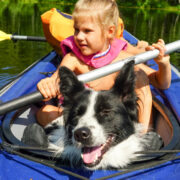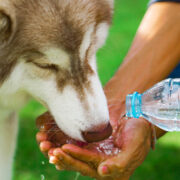Should My Dog Go to Doggy Daycare?
Is doggy daycare good for dogs? Increasingly dogs are seen as important members of our family; our lives revolve around them, and so do our wallets! Dogs take a prominent role in our homes as our cherished companions. In fact, many of us see our dogs as our children. As much as we love our dogs, most of us also need jobs, which often means our dogs spend hours at a time home alone without us.
For that reason, it’s not surprising that dog daycares have become increasingly popular and successful businesses that alleviate boredom for dogs during the day.
Yuppy Puppy, which opened in 1987 in NYC, is credited as the first doggy daycare. Now, most cities across the country have an array of daycare options from large chains to small in-home daycare options.
But is daycare right for your dog on an individual level?

Temperament Considerations
When considering if your dog should go to daycare, it’s important to consider if it’s someplace you want your dog to enjoy going to, or if it’s an experience your dog would like or benefit from.
Is doggy daycare good for dogs? Although many dogs thrive in a dog daycare environment, daycare isn’t right for every dog, or for every stage in a dog’s life.
Every dog is a good dog, but not every dog has the right temperament for daycare.
It’s true that most dogs start out as very dog social or are interested and happy to engage with a wide range of other dogs when they are puppies. However, as dogs reach maturity, many to most dogs become more dog tolerant or selective.
Dog-tolerant dogs may get along with some dogs or certain types of dogs, but usually require playtime supervision to help them coexist when interacting to remain successful. A smaller percentage of dogs are aggressive or uncomfortable with all dogs.
There is a cultural stereotype that most if not all dogs are dog social, however, that isn’t the case. Only a small percentage of dogs remain highly dog social throughout their lives. The video below by Badrap.org breaks down the variants of dog-dog relationships.
For dogs who are truly dog-social, attending dog day care can be a great outlet for their physical energy.
The Benefits of Doggy Daycare
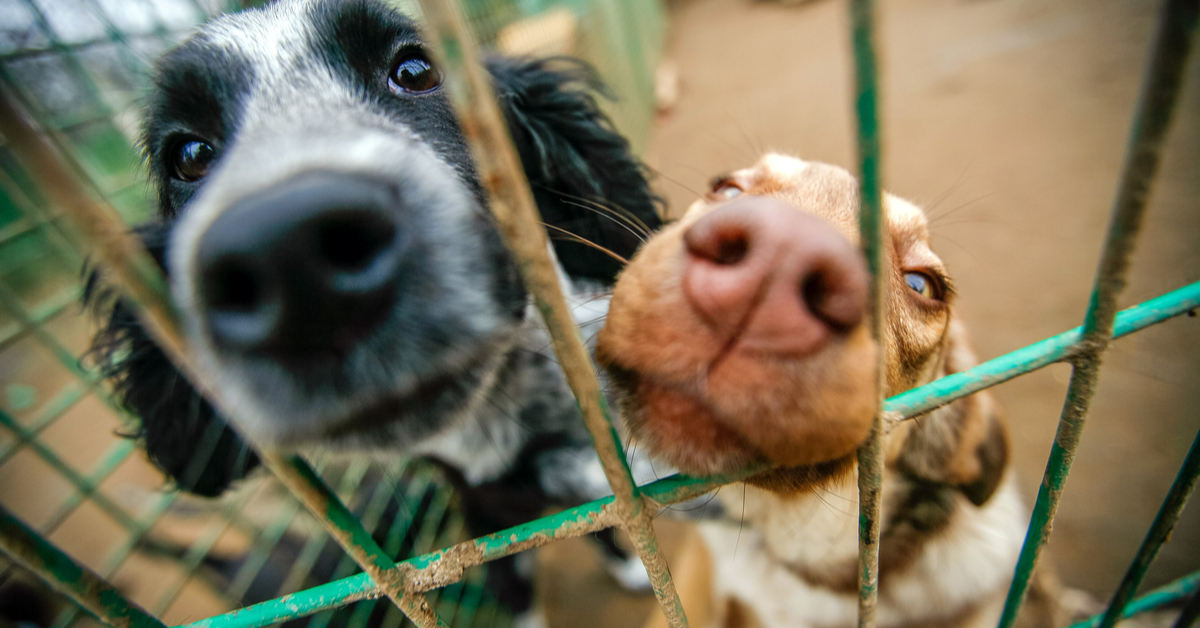
Mental stimulation, exercise, and engagement are the primary reasons many guardians drop off their dogs at daycare. For dogs that struggle to be alone with destructive behaviors like barking or chewing, daycare can be a great option as you work on teaching your dog more appropriate skills.
In some situations, doggy day care can be helpful for dogs who are struggling with clinical separation anxiety as a temporary solution while their family members work with a positive reinforcement-based trainer, their veterinarian, and possibly a veterinary behaviorist to work through the dog’s underlying anxiety issues.
Well-run and supervised dog daycares work because of the structured framework of the playgroups. Instead of dog parks where dogs of unknown health and temperament are set loose (not infrequently resulting in fights, injury, and the spread of illness), daycares generally involve a more structured and supervised opportunity for dogs to play together.
Keeping things copacetic
Although some daycares model their space after a dog park with all dogs together in one large space, most daycares have different play areas. Dogs are assigned to different playgroups based on their size. This prevents smaller dogs from accidentally becoming injured by large dogs. These daycares will also divide dogs by energy level or play style to prevent conflict from arising within the space.
Smaller at-home daycares, usually in an individual’s home and yard, tend to have fewer dogs than larger daycares. Like the playgroup model, at-home daycares select dogs that have similar temperaments, play styles, and/or sizes.
By creating specific playgroups, doggy daycares are able to maximize the potential of success of healthy play between dogs and minimize the risk of injury.
A key component of what makes daycare play safe for dogs is the supervision by staff who understand dog body language and behavior. Staff members are able to intervene if play becomes too rough or a dog starts to get overwhelmed.
Is Daycare Right for Your Dog?
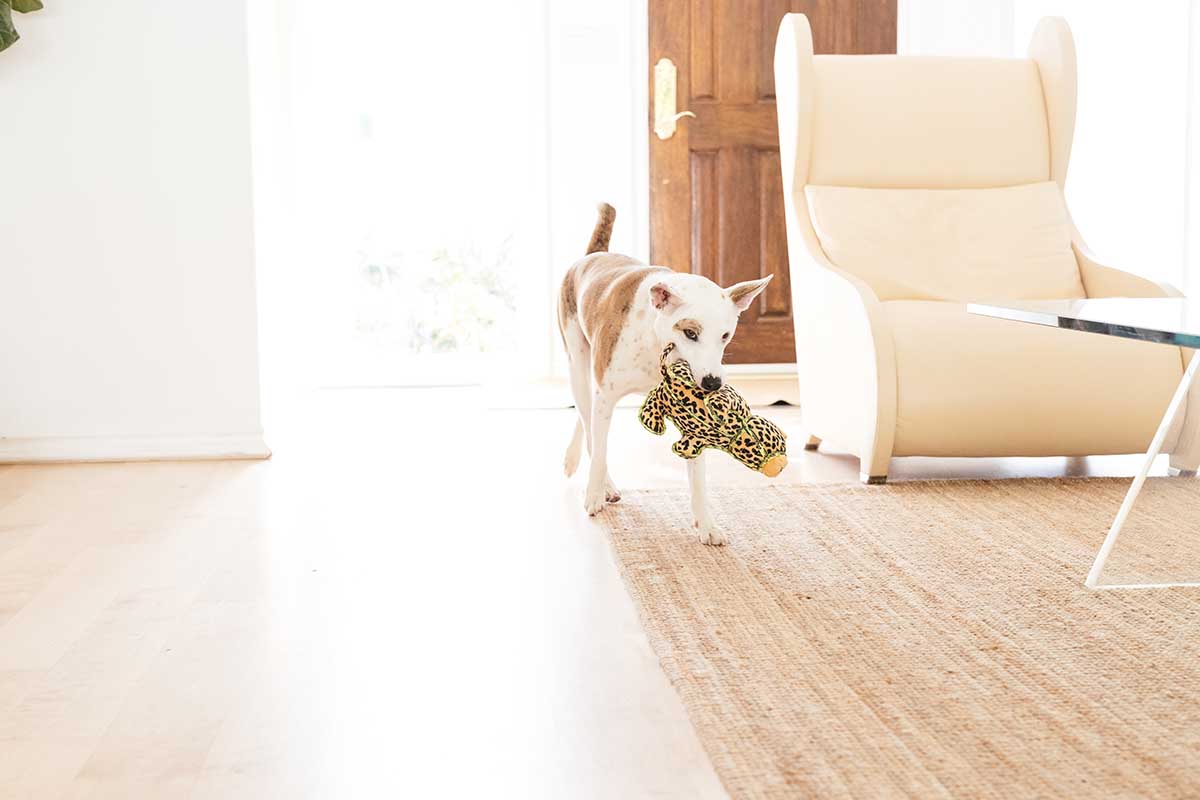
Although some dogs thrive with daycare, daycare isn’t good for every dog. Dogs who are stressed, anxious, reactive, or otherwise struggle with interactions with other dogs are not good candidates for daycare.
If your dog doesn’t really enjoy playing with other dogs, is a senior, or is just naturally quiet and happy to sleep all day, the loud and busy atmosphere of doggy daycare may be more stressful than beneficial.
Daycare isn’t without risks. A daycare environment can be overwhelming and overstimulating for some dogs. Depending on how the daycare is structured it’s very easy for dogs to get exhausted which can lead to physical injuries.
Additionally, dogs at daycare can become mentally and emotionally overstimulated, which can lead to conflict between dogs in the space as well. Even if you love the idea of your dog playing with other dogs while you are away at work, it’s important to remember daycare isn’t right for every dog.
“Dropping a dog off at daycare is like stepping into the heart of Disney World. It is an overstimulating, exhausting place to be,” said Amanda Smith, who worked at a doggie daycare before joining Outward Hound as a product line manager.
“There are many new noises, smells, sights, textures, people, and dogs. For some dogs, it is just too much and they are not going to benefit from the experience. “
Daycare won’t re-socialize a dog who is uncomfortable with other dogs. Similarly, if your dog is social but tends to resource guard, it’s best to avoid sending your dog to daycare as this behavior can easily instigate fights.
Dogs who don’t require special needs, and are comfortable and confident with good social skills around lots of dogs and people make the best candidates for attending daycare.
Finding the Right Daycare

If you’re a pet parent considering sending your dog to daycare it’s important to remember that not all daycares are created equally. Quality daycares are often going to be those that have fewer dogs and a larger staff. This allows for better supervision and engagement with all dogs in attendance.
The most expensive daycare isn’t necessarily the best daycare, but a good daycare that is safe, well maintained, and with well-trained staff isn’t usually the cheapest option, either.
It’s important that you find a daycare that isn’t using any aversive techniques. This includes punishment approaches like:
- throwing shaker cans to startle/distract dogs
- utilizing physical correction like “alpha rolls”
- collar corrections
- shock or ecollars
- spray bottles or “dog off” spray
Instead, you want to find a daycare that works with dogs using positive reinforcement training approaches and manages the setup of the space to help dogs to be successful, rather than punishing their behavior.
Playgroup setup
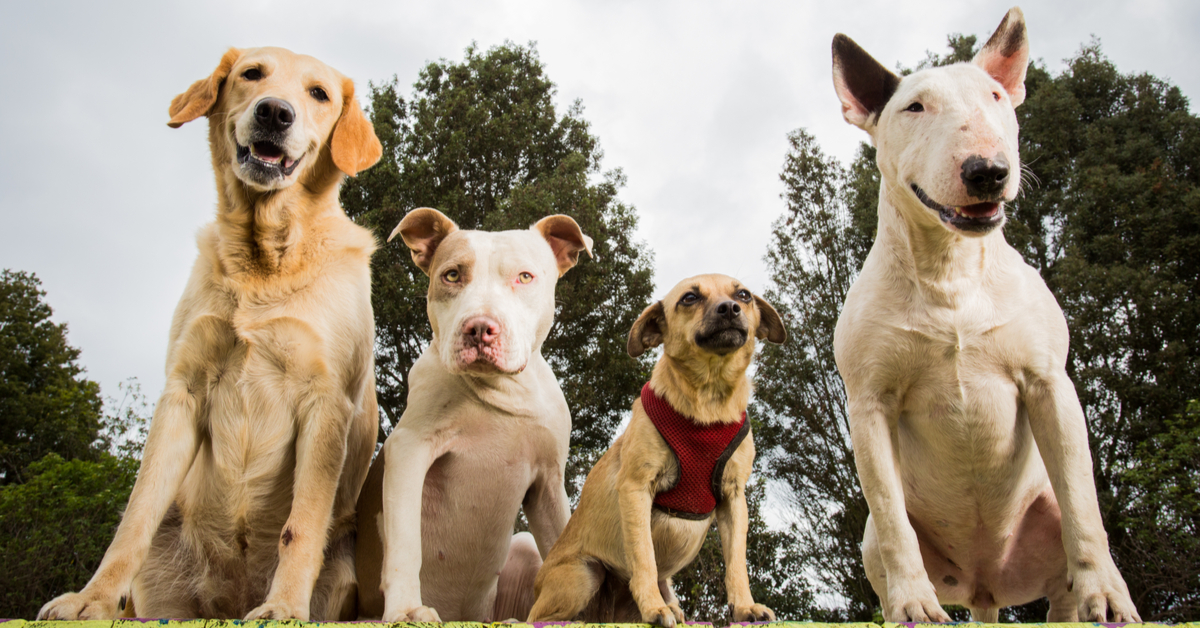
A quality daycare setup will include spacious play spaces with appropriate flooring like rubberized matting. The kind of flooring that provides traction and cushion for dogs as they run and play, but also is easy to clean and sanitize.
Employees at doggy daycares should have experience working with dogs and receive ongoing training around positive reinforcement training techniques, canine body language, ways to de-escalate conflict between dogs, and positive and humane handling techniques.
Proper setup and supervision of playgroups are important to keep dogs safe and having fun. Again, daycares should be separating dogs of different sizes and playstyles into different playgroups. This will reduce conflict in the space and be safer for all dogs attending.
Similarly, some daycares will have puppy-only days or playgroups and areas of their facility, while others will require dogs to be a certain age before attending.
Evaluations
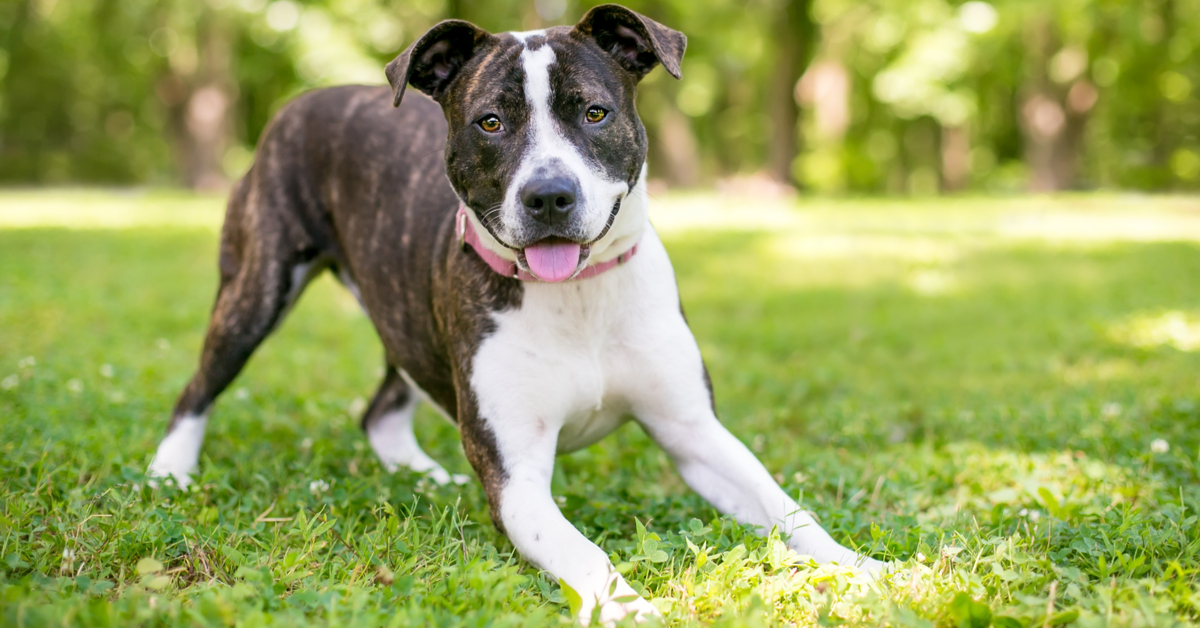
Responsible daycares will be picky about what dogs are allowed to come to daycare. This ensures their safety and the safety and well-being of other dogs in the playgroups.
To determine if dogs will be a good fit, most daycares will ask guardians to bring their dogs for an evaluation. The staff will watch how the dog interacts with people and other dogs to see how they fit in.
If your dog passes this evaluation they can start attending daycare. Staff will continue to evaluate the dog, often sending home daily “report cards” about what dogs did during the day, who they played with, and any behavioral or health concerns that come up.
Many daycares and dog boarding facilities also have video streaming options where guardians can watch their dogs during the day. This allows guardians to both watch how staff treat and interact with their dog and evaluate how their dog is enjoying their time at daycare.
Interviewing Dog Daycares

Before enrolling your dog in daycare you’ll want to find the daycare that’s right for you and your dog. If possible, look at multiple doggy daycares to see how they operate. Select the one that feels like the best fit for your dog.
Even before bringing your dog in for an evaluation, you can ask to take a tour of the facility. One approach is to stop in to introduce yourself and ask to schedule an appointment. This allows you to get a feel for what the daycare facility is like when they aren’t expecting you.
When you are looking at different doggy daycares, remember it’s ok to ask lots of questions to get a feel for their approach, and what your dog’s time at daycare will look like.
Questions to ask when touring a prospective daycare
Some questions you might want to ask a daycare include:
- What kind of climate control (heating and air conditioning) does the facility have for the dogs?
- Are dogs ever left alone?
- What kind of training does the staff have around dog behavior, positive reinforcement training techniques, and canine body language?
- Are staff certified in canine CPR?
- What kind of security measures are in place? (I.e., double doors, fencing type, gates if there is an outdoor play space, etc.)
- What is the ratio of dogs to daycare workers?
- How are playgroups set up?
- How is a conflict between dogs handled?
- Is there a live video feed that you can watch remotely?
- What is your emergency protocol if a dog gets injured — do you have a vet you work closely with?
- What kind of play spaces are available to dogs in the daycare? Are there environmental features like an ability for dogs to play outside as well as inside? Are there pools or climbing structures? How are dogs supervised with those?
Even in the best and most well-supervised play spaces, some conflict between dogs is inevitable. It’s important to know how proactive daycare staff is in terms of watching a dog’s body language and interactions. What is their approach to breaking up and deescalating fights if they occur?
Staying Healthy

The American Veterinary Medical Association (AVMA) notes that to keep dogs safe in social settings it’s essential that facilities be properly sanitized. This includes the immediate cleanup of pee and poop to prevent other dogs from coming into contact with it.
Additionally, dogs who display any symptoms of illness like coughing or diarrhea shouldn’t attend playgroups. The AVMA also advises that mingling between dogs can present the risk of transmission of various diseases. Illness can be spread through shared water bowls, toys, or play equipment, as well as direct contact with another dog.
If you are considering taking your dog to daycare, ask what the disinfectant protocol is for all areas of the daycare space. Don’t forget to ask what vaccines dogs are required to have prior to attending daycare, too.
It’s a good idea to schedule an appointment with your veterinarian to confirm your dog is up to date on all vaccines and preventatives for heartworm, fleas, and ticks. Ask if there are any other optional vaccinations they recommend for dogs attending daycare.
Bad Habits
Daycare can be a lot of fun for dogs, but it’s more like babysitting than training. If you have a dog with challenging habits like excessive barking, daycare might solve the issue of your dog bothering your neighbors during the day. However, your dog will not automatically learn new behaviors because of attending daycare.
In addition, some dogs will learn challenging behaviors from other dogs at daycare. Although daycare isn’t training, some dog daycare facilities have a trainer on staff. For additional fees that trainer will work individually with your dog during the day in another part of the facility.
Is Doggy Daycare Good for Dogs? Alternatives to Doggy Daycare
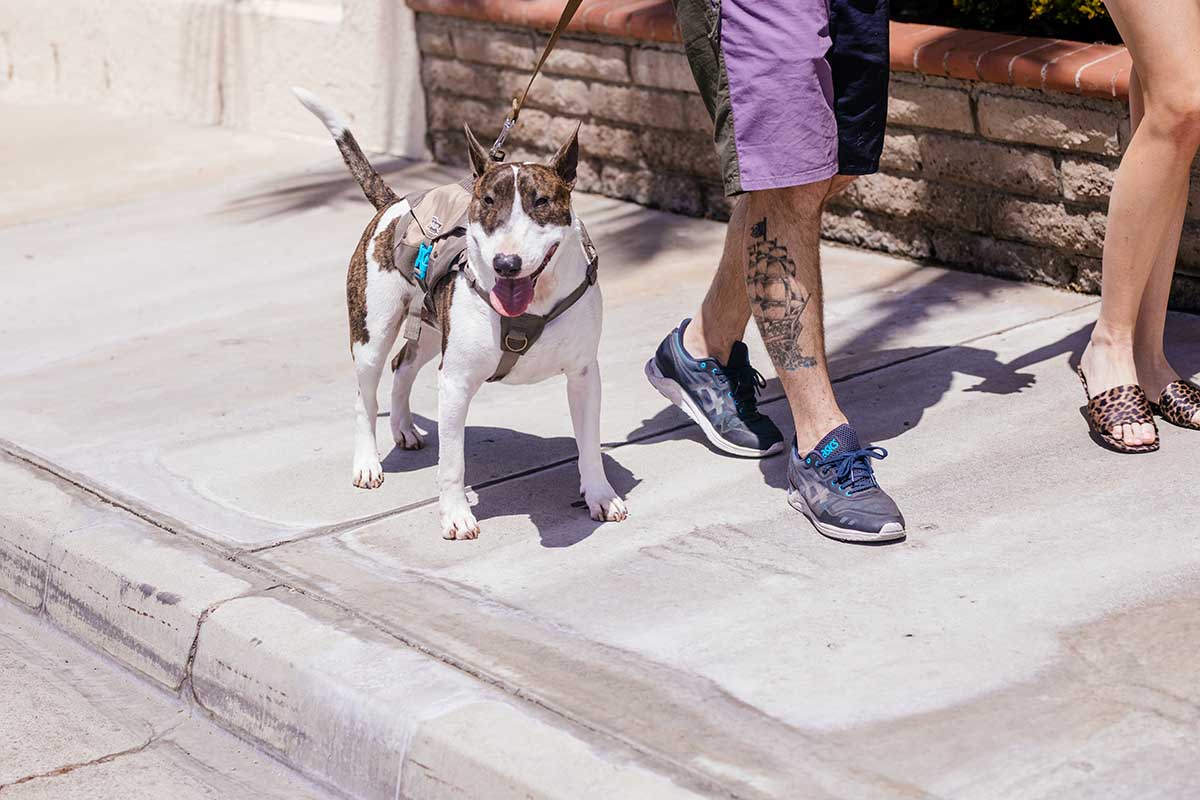
If you aren’t sure your dog would like daycare, or you know your dog is of an age or temperament who wouldn’t be a good fit for daycare, there are alternatives to get your dog’s physical and enrichment needs met.
If your dog enjoys playing with dogs but is a bit selective, you have options! Instead of daycare, schedule play visits with one or two other dog friends with who you know your dog gets along well. You can arrange for these play dates to be at your home. Many dog training centers will let members of the public rent their space for playgroup meetups as well.
For dogs that aren’t a good fit for daycare, have a dog walker or dog sitter visit your dog during the day. This is a great option that gives your dog the attention and exercise they need during the day. For some dogs, this might look like a long afternoon walk, and for others a quick trip out to potty. Then some casual hangout or cuddle time with the sitter.
For busy dog guardians who have to spend long hours away from home, dog daycare can be a great option. Daycare can provide dogs with much-needed exercise, supervision, and enrichment during the day. Tour and interview prospective daycares to make sure you feel comfortable about how your dog will be cared for in your absence.
Most importantly, if you’re considering sending your dog to daycare make sure that your dog enjoys being social with other dogs and has the right temperament to safely enjoy the experience.
